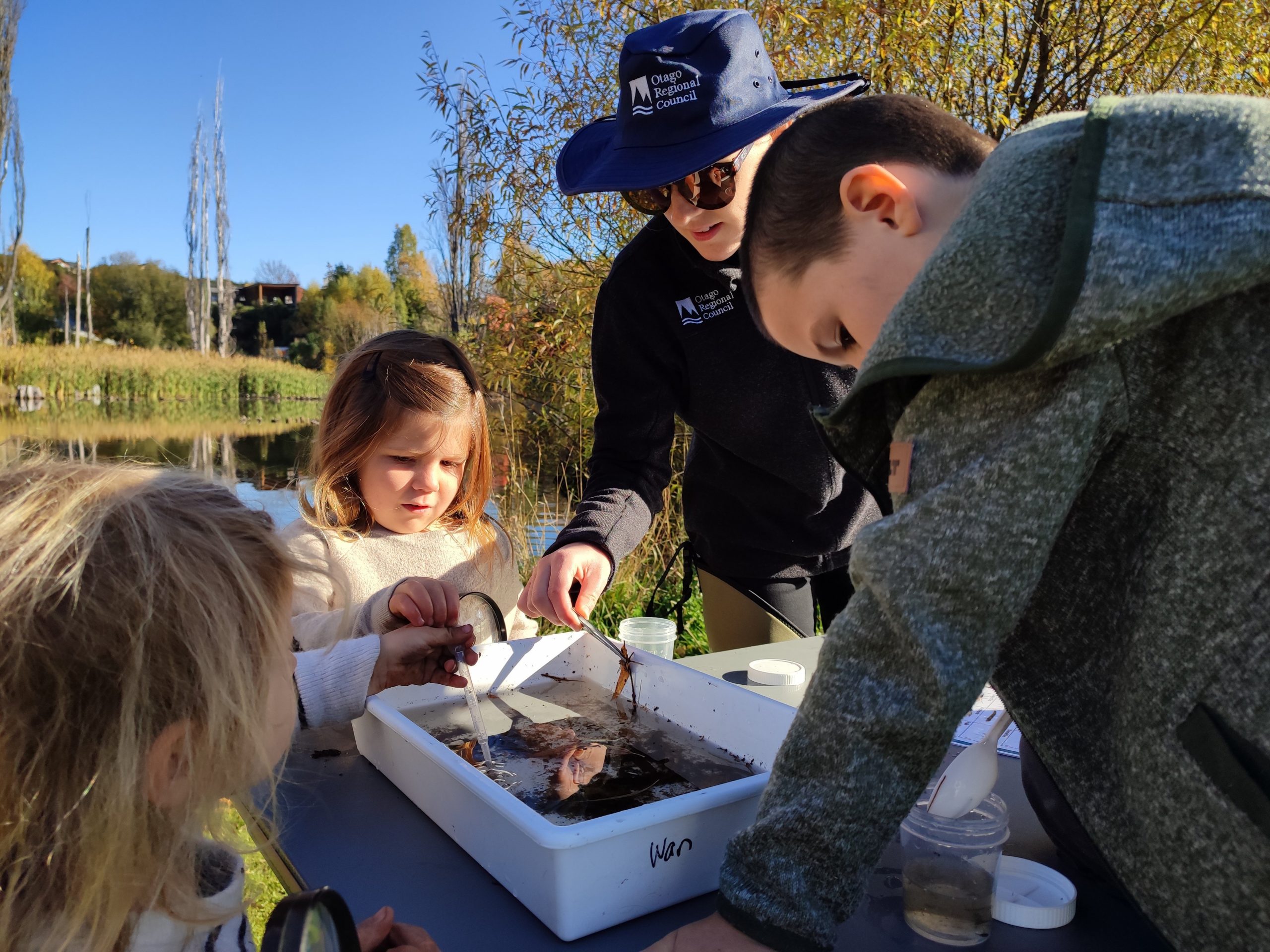Efforts to preserve a hidden oasis in the heart of Albert Town were on full display last Saturday, as local environmental organisations held an open day at the Albert Town Lagoon.
The event; a collaboration between Otago Regional Council (ORC), Queenstown Lakes District Council (QLDC) and the Albert Town Community Association, saw people from across Upper Clutha visit the reserve to learn more about its importance to the environmental health of the region.
Attendees heard from groups such as Wai Wanaka and Wanaka Backyard Trapping on the work going into keeping the lagoon clean and predator-free, while a local harakeke weaving group -gave a demonstration on how people could cultivate New Zealand flax in their own backyard.
Community-based nursery Te Kakano was also on hand to oversee a native planting, with adults and children alike wielding shovels to aid in the effort.
ORC’s central catchment adviser Brooke Clark, whose job involves monitoring the condition of the lagoon, said the wetland was ‘‘crucial’’ to the health of the nearby Clutha River (Mata-Au), and more work was needed to ensure the area was in good shape.
‘‘At this stage we want to remove some of the exotic plants and plant some native ones to really help with that water filtration. At the moment there’s not much of that happening.’’
While the QLDC and ORC have planned restoration work at the lagoon over the next two years, Ms Clark said the public also had a role to play.
‘‘It’s really important that people connect with their local ecosystems and understand how their properties are connected to here. But there are also the benefits that they can bring as well.’’
Ms Clark gave the example of dumped goldfish as a way that people’s actions could have a direct impact on the lagoon.
‘‘There’s quite a big issue with people tipping goldfish tanks into the wetlands, thinking that ‘oh it’s a natural habitat, it’s a natural ecosystem, it will be fine’.
‘‘It’s not OK. The carp are not native here and they can grow to be actually some of the biggest found in New Zealand.’’
Aleisha Worthington, of Luggate, who brought her children, nieces and nephews to the event, said they often made the journey to the lagoon to appreciate the abundance of wildlife there.
‘‘I don’t think I would have noticed it unless one of my kids was obsessed with birds. That’s why we came here.’’
She said the event had a ‘‘good turnout’’, and that the children particularly enjoyed having the opportunity to plant their own natives at the reserve.





